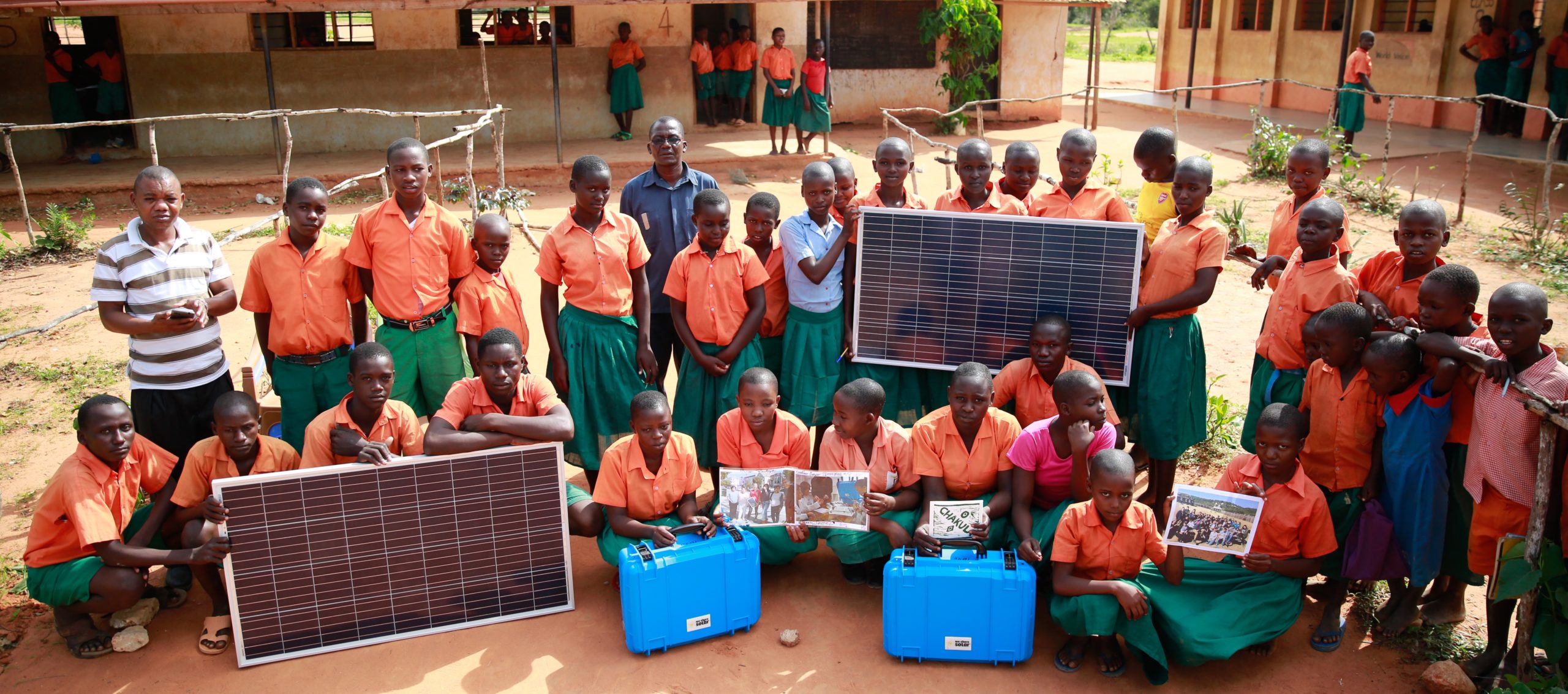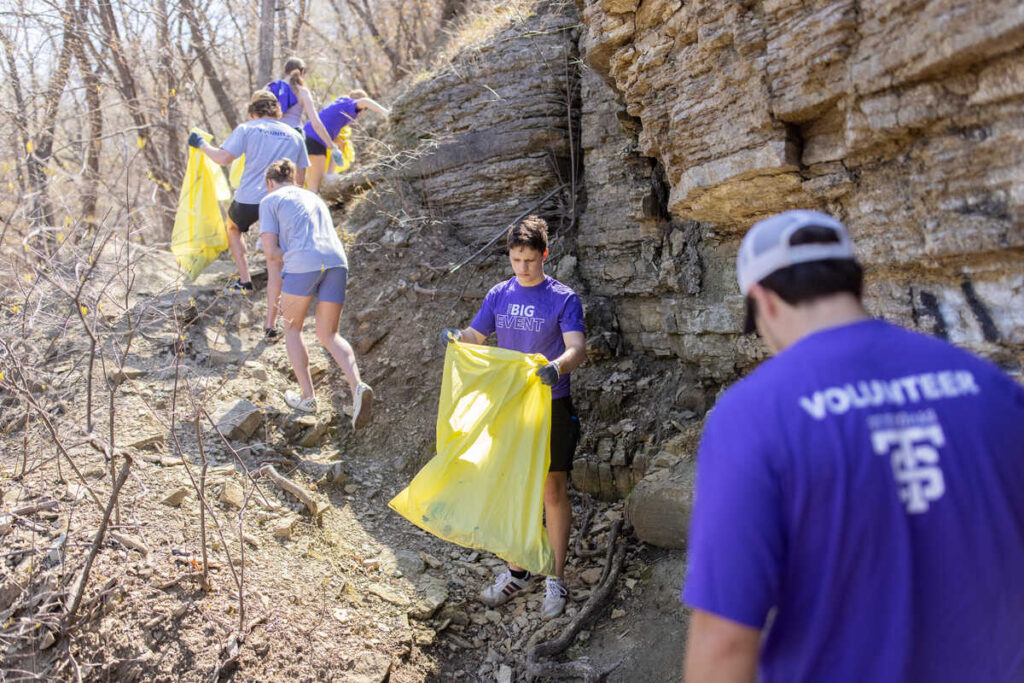Sylvia Revoir ’22 and her teammates on the Opus College of Business Marketing 430 course capstone project had hit a roadblock. She, along with fellow seniors Sarah Byington ’22, Cam Sedlack ’22, Chloe McEnelly ’22 and Ben Martel ’22, tackled a challenging task tied to the university’s mission to advance the common good.
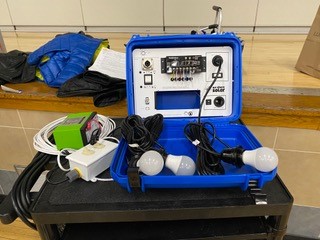
Their goal: to create a comprehensive marketing plan for We Share Solar, a division of the nonprofit We Care Solar. The plan would center on how to successfully open a new business-to-consumer channel for the Solar Suitcase, a standalone solar electric system offered by the company’s parent organization.
Over the past 11 years, Solar Suitcases have brought lighting and essential power to more than 7,100 health centers in 49 low and middle-income countries.
We Share Solar provides education on the benefits of solar power on the environment for high school or college students. Traditionally, the nonprofit reached students through partner schools and is now expanding to offer solar training materials directly to any interested student.
With this new way to go to market, called Power2Share, students fundraise the $2,500 needed to build a Solar Suitcase, deliver it to its destination (typically rural schools, orphanages and youth sites in refugee camps) and provide training for the staff who will be using the Solar Suitcase.
“What we’re talking about is not much money,” We Share Solar Co-founder Gigi Goldman said. “For a young person and for a science project, it seems like a lot of money. It just depends on what lens you’re using to look at it.”
There was demonstrated interest in the business-to-business model of We Share Solar, with 32,000 American students learning about solar electricity and building systems for more than 325,000 teachers and students living in energy poor regions of the world.
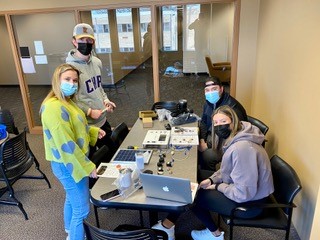
We Share Solar already was trying to determine how to effectively appeal to high school and college students directly. However, the organization needed to crack how to successfully reach a younger demographic instead of its typical target audience of teachers and funders.
“The way we were going at it was an adult, parental very boring approach of, ‘Participate in We Share Solar’s Power2Share to build your CV for college applications; if you like Lego robotics, you’ll enjoy building this,’” Goldman said. “It was all very stiff and self-serving.”
To successfully complete the capstone project, the team in marketing professor Gino Giovannelli’s course had to get up to speed quickly. They couldn’t spend the entire semester just trying to understand We Care Solar and We Share Solar; they had a deliverable in the fourth week of the course.
“This was a form of entrepreneurship. There was no track here – we were making it up as we went,” Goldman said. “We were trying to figure it out together [with the St. Thomas team] … no road map. That’s what entrepreneurship looks like; in our case, it’s social entrepreneurship.”
Goldman said that social entrepreneurship, in some ways, is even more complicated than for-profit entrepreneurship, due to the need of completing work while also figuring out how to fund the work.
To fully understand We Share Solar, the Marketing 430 team went through the Power2Share curriculum themselves, including doing the hands-on work of building Solar Suitcases.
“This project had academic rigor and it challenged the students intellectually from a learning perspective, but it played right into their heart and gave them boundless energy and excitement to put the time into a tough project,” Giovannelli said.
The Marketing 430 team conducted research and tried many different angles but couldn’t solve the challenge. They turned to Giovannelli.
“I’ve never had a team utter the words, ‘We feel defeated,’” Giovannelli said. “We went to a conference room and we just talked through it. … I grew as a teacher that day. I said, ‘The best thing I can tell you guys is this is how it goes. There are days in business when you do feel defeated. The good news is the sun will come up tomorrow. Sometimes with a good night’s sleep and bingeing a couple of episodes of a favorite show, you can have a fresh new look at things.”
‘You got it all wrong’
From analyzing the research findings, the Marketing 430 team determined that the way to successfully connect directly with students was to show the impact that Solar Suitcases have.
For We Share Solar, that changed everything, from the language used to the organization’s website structure.
“It turned us on our head,” Goldman said. “We went back and scrapped everything that we had started and started over.”
Armed with the new direction based on the research, the Marketing 430 team then developed a comprehensive marketing plan.
As part of the plan, the Marketing 430 prioritized tactics ranging from the We Share Solar website to display advertising, search, email, social media and mobile digital marketing.
We Share Solar started implementing the plan this month.
“It aligned with our timing perfectly,” Goldman said. “Having just completed the curriculum, we were scratching our heads and wondering how to go to market.”
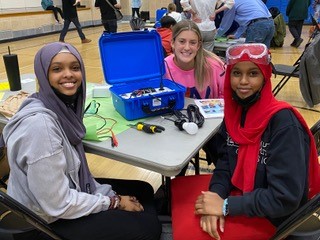
Near the end of the spring semester, Giovannelli, Goldman and the Marketing 430 team volunteered with more than 60 students from Hopkins West Junior High School to build nine Solar Suitcases that will light classrooms for up to 5,000 students in Africa.
“I could not have ended my college career in any better way,” Revoir said. “I loved my team and we loved working with Gigi and Gino on this amazing project. We created an amazing presentation and report, but we loved doing it because we really stood behind what we were doing. We believed in this organization, and we felt good doing this for a good cause. Our efforts meant that much more knowing that what we were doing was actually going to be taken into consideration and we were a small part of We Share Solar.”
